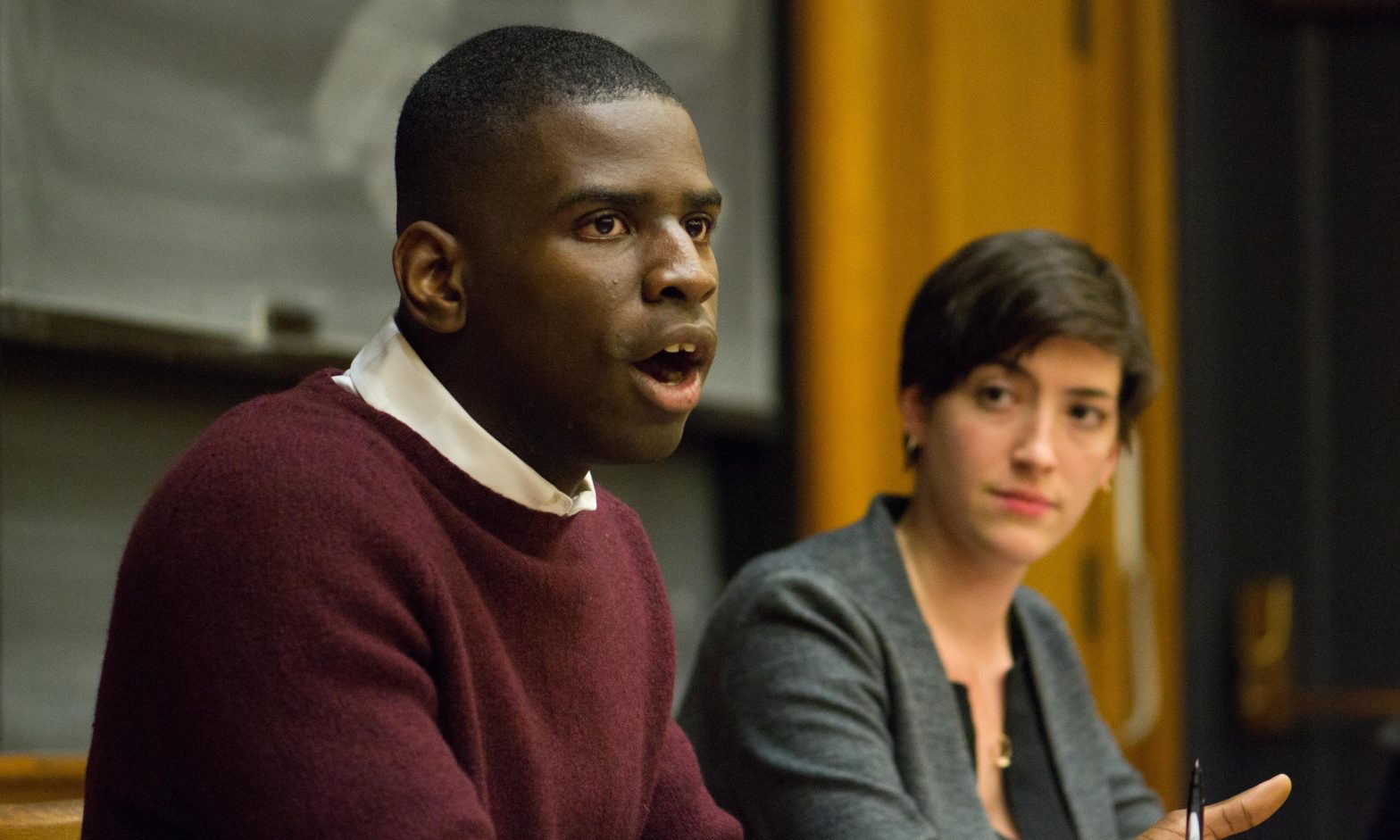Can’t get enough of this race? Check out all of The Politic’s Ward 1 coverage here.
At Wednesday night’s debate between the two candidates for Ward 1 alder, Ugonna Eze ‘16 and Sarah Eidelson ‘12, LC 101 was divided down the middle. On the left side sat Eidelson’s supporters, on the right, Eze’s, and each erupted in applause each time their candidate finished speaking. From the beginning, the tension between the two groups was palpable—furtive looks cast from one side to another pervaded the lulls in the debate. But, ultimately, the dialogue between Eze and Eidelson remained respectful and rational, even as they criticized each other’s policies.
From the beginning, Eze called out Eidelson’s seemingly perennial absence from campus, urging the audience to “expect more from our alder and from ourselves.” He was standing—a great orator, his articulations invited the crowd to the conversations he aims to have with the people of New Haven. Eidelson, as always, looked uncomfortable to be on stage: never the politician, she spoke slowly and deliberately, and framed her responses honestly.
Eidelson did not refrain from hitting back at Eze, either, rebutting points with more zeal than she ever showed with Fish Stark, her challenger in the Democratic primary. At one point, Eze cited literacy levels among New Haven’s adult population as a reason for the high unemployment rate. Eidelson responded by calling on the city’s companies to hire more workers from underprivileged communities and by calling Eze “disrespectful” for suggesting that residents couldn’t get jobs because they couldn’t read. Eze hit back, saying that the Board of Alders commissioned the study from which his statistics came, and that “not having those conversations” damages the efforts to fix the problem.
Throughout the debate, Eze spoke about his willingness to have conversations and disrupt the status quo. During his closing statement, he spoke of the necessity for change, and called upon those unsatisfied with Eidelson to vote for him on Tuesday. He spoke of organizations he had talked to and members of the community whose stories he had heard, breaking each down with statistics and oral footnotes.
Eidelson seemed most passionate about her views on the relationship between Yale and New Haven.
“New Haven residents,” she said, typically careful, “tend to have low expectations for Yale students. They see Yale students as going into conversations thinking that we’re better than they are. And the idea that we’re smarter than them is a dangerous concept.”
She spoke of her experience, and of the community building that she’s worked to achieve within the Board of Alders, as Minority Leader and as a Yale alumnus. She talked of her own time at Yale, organizing in the community and getting involved with activism on campus, and urged the audience to fight for their voices to be heard. It was lofty, but supported by the time she’s spent at City Hall, and the stories she herself has heard there.
Both candidates spoke passionately about the questions they were asked—both clearly care about New Haven and the politics they want to foster as the alder for Ward 1. This debate highlighted their most salient differences as both appealed directly to the audience: vote for how you want Yale to interact with New Haven. On November 3rd, that question will finally be answered.

